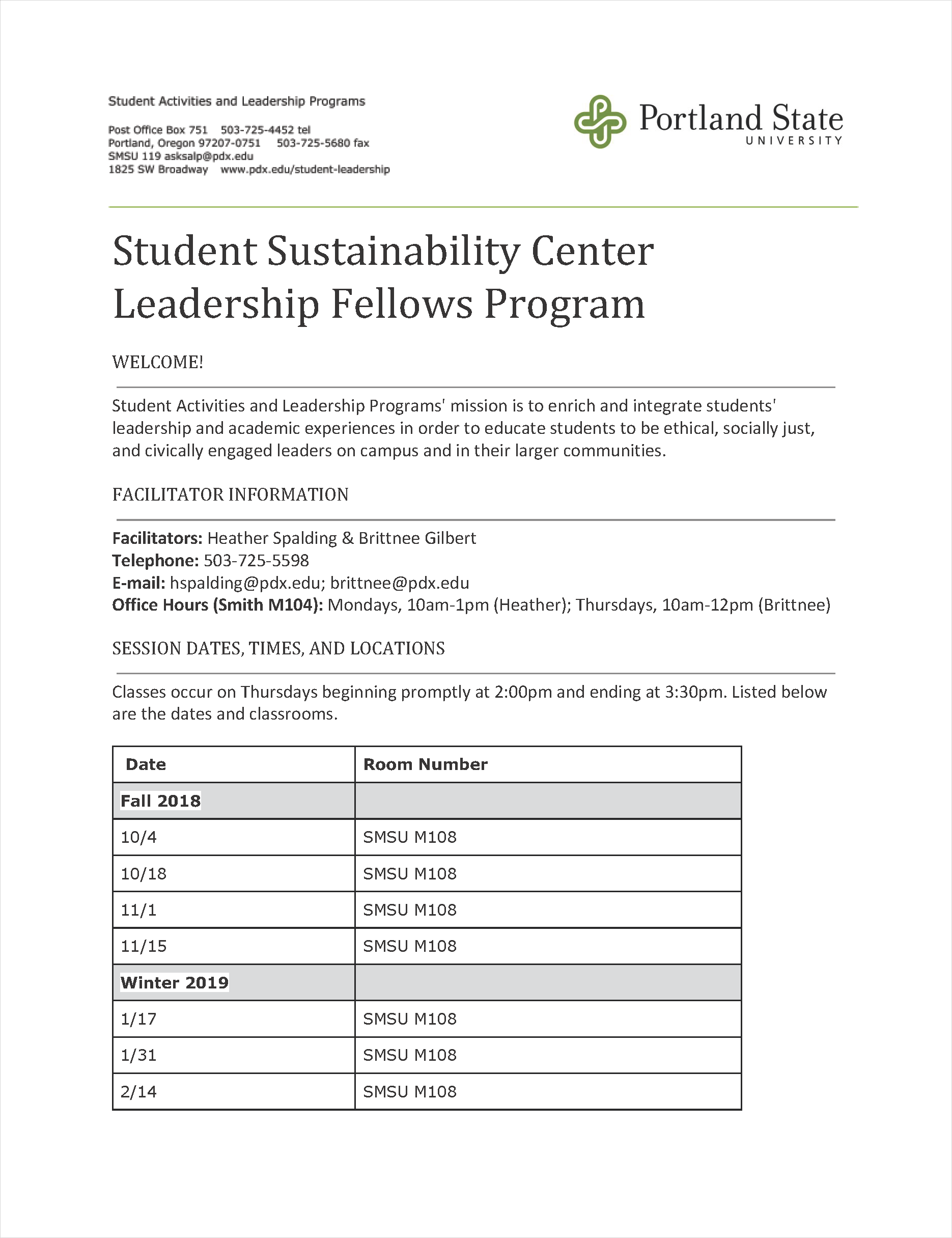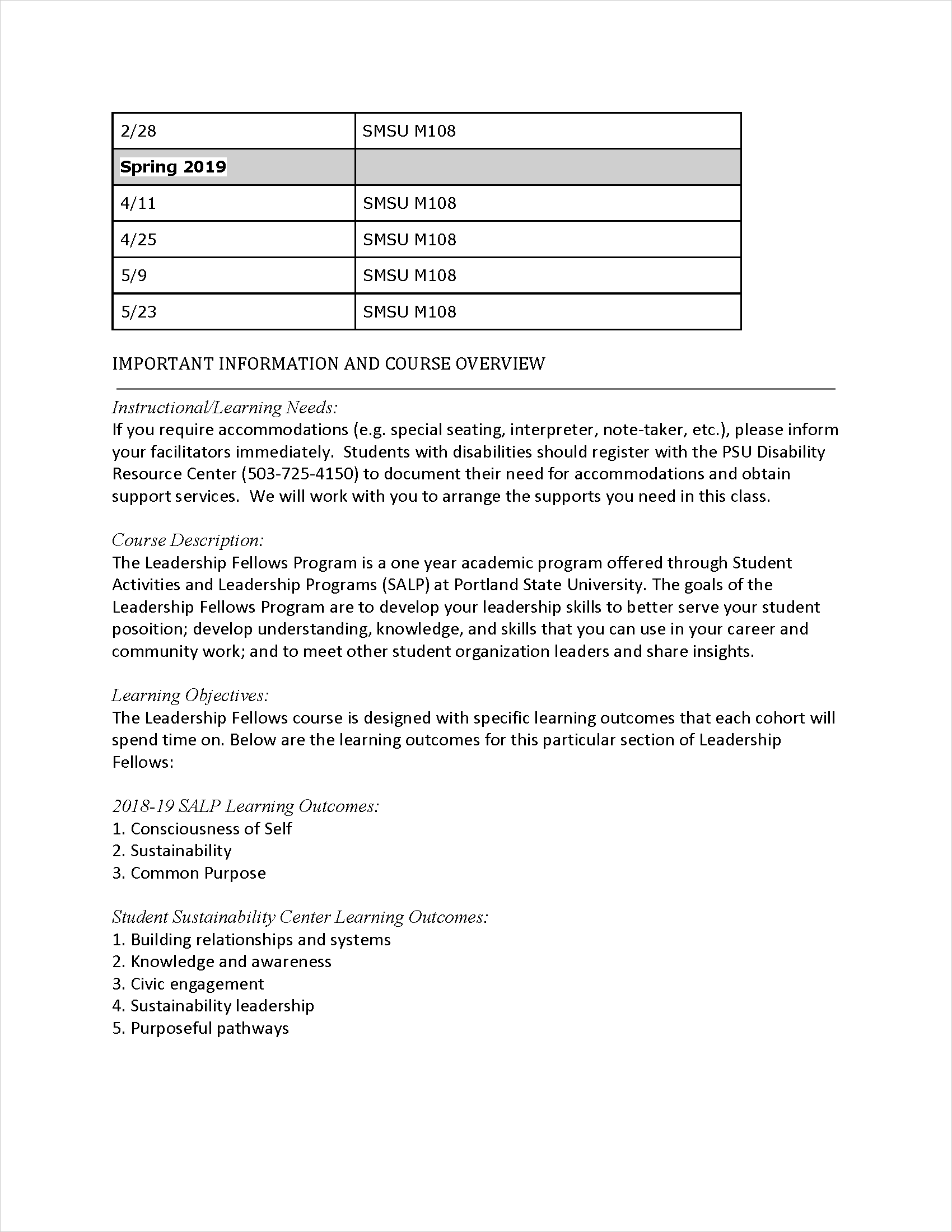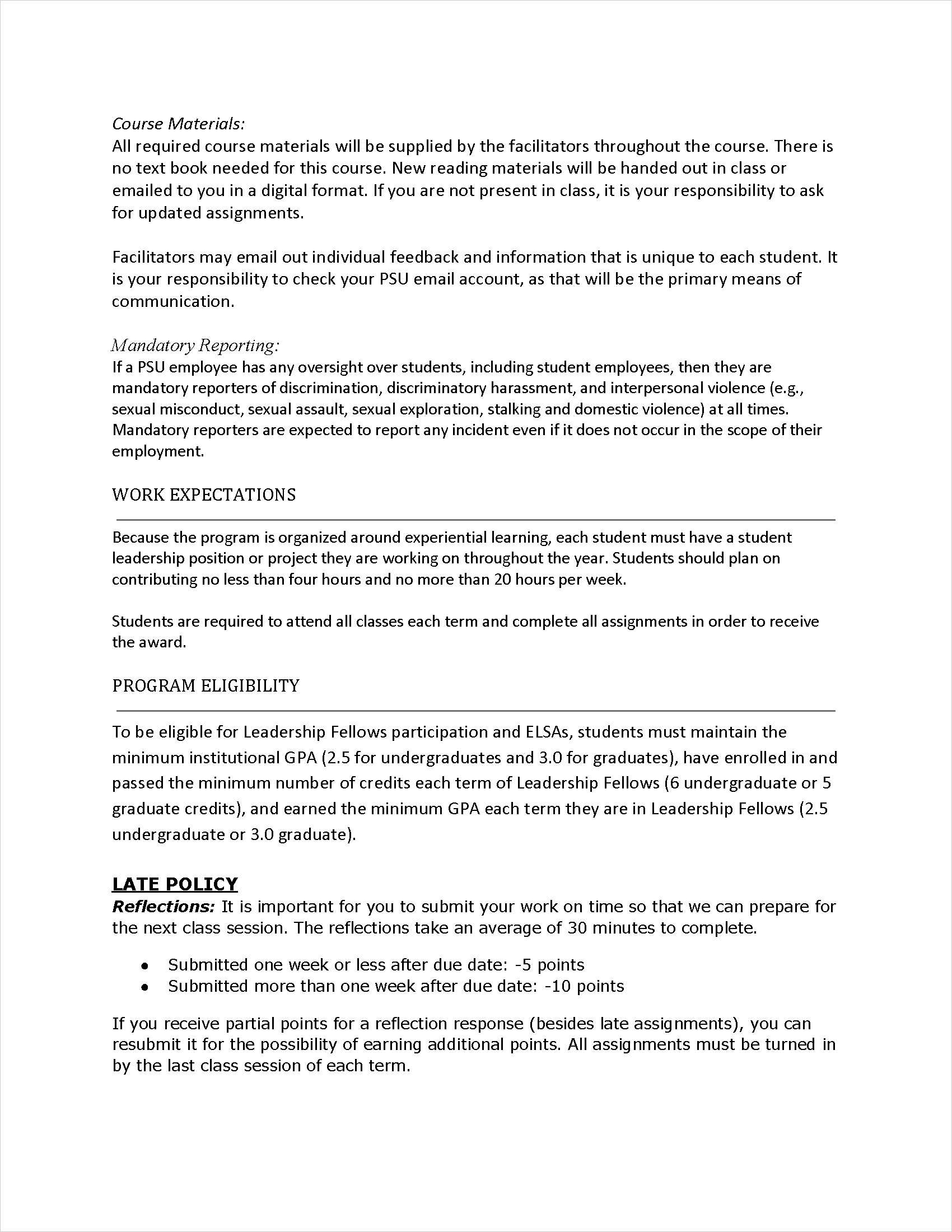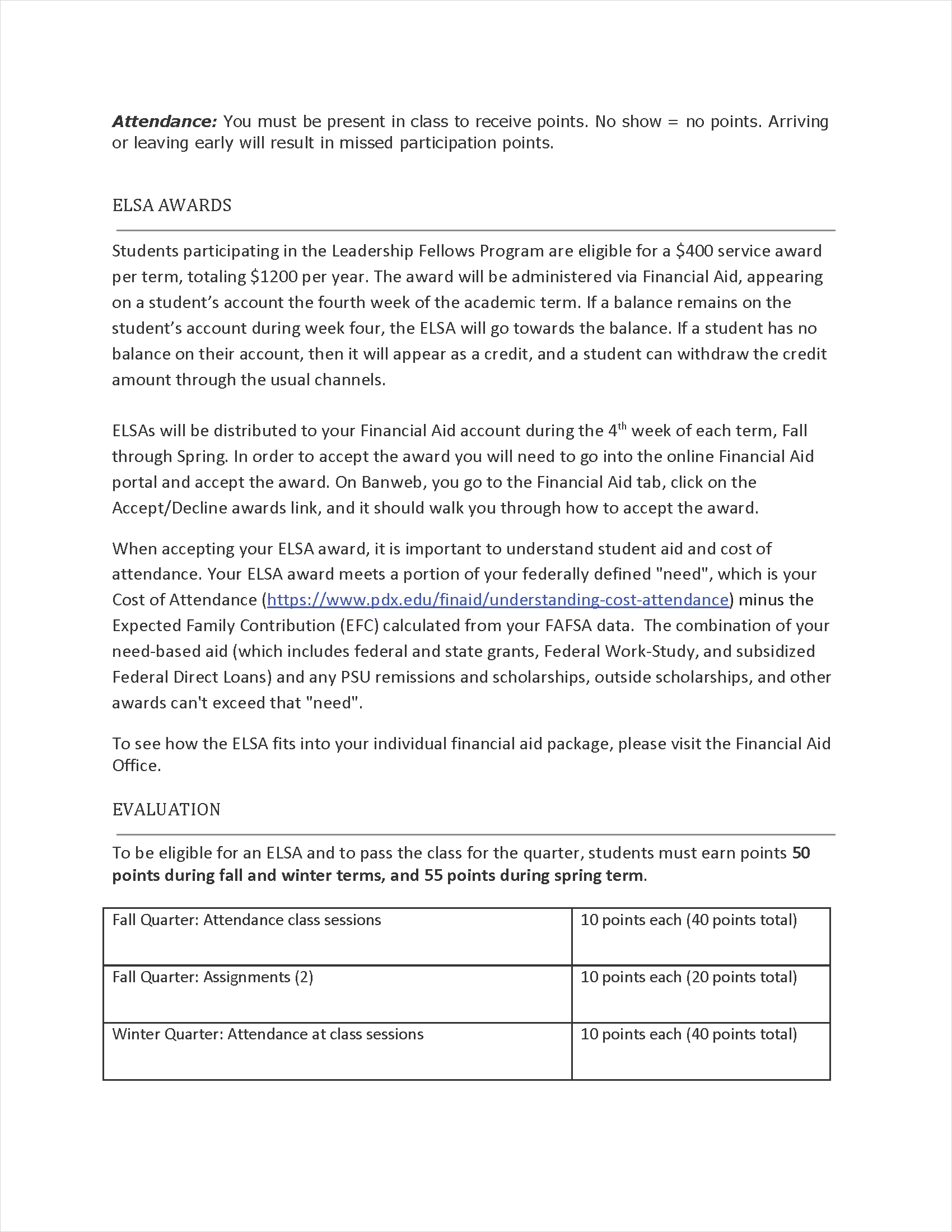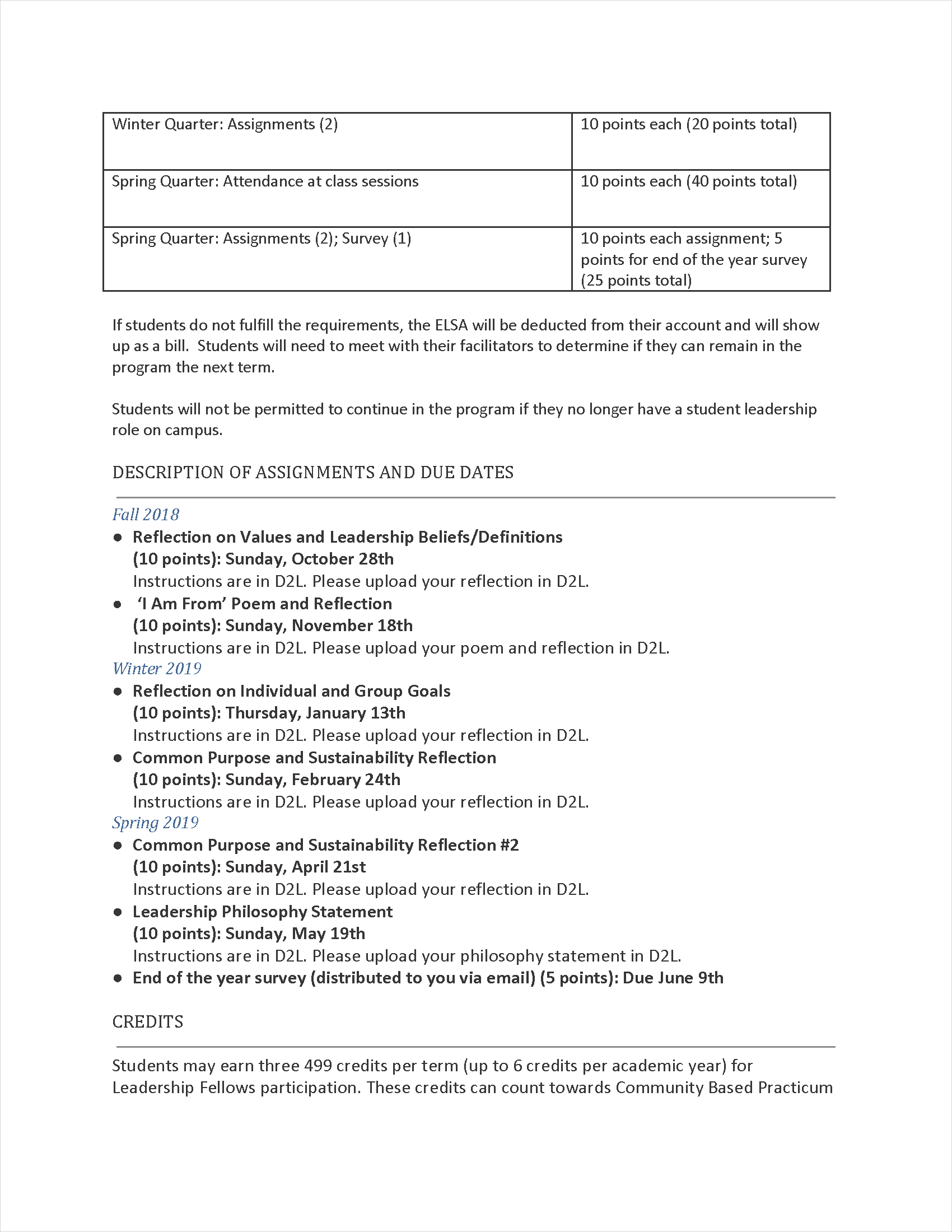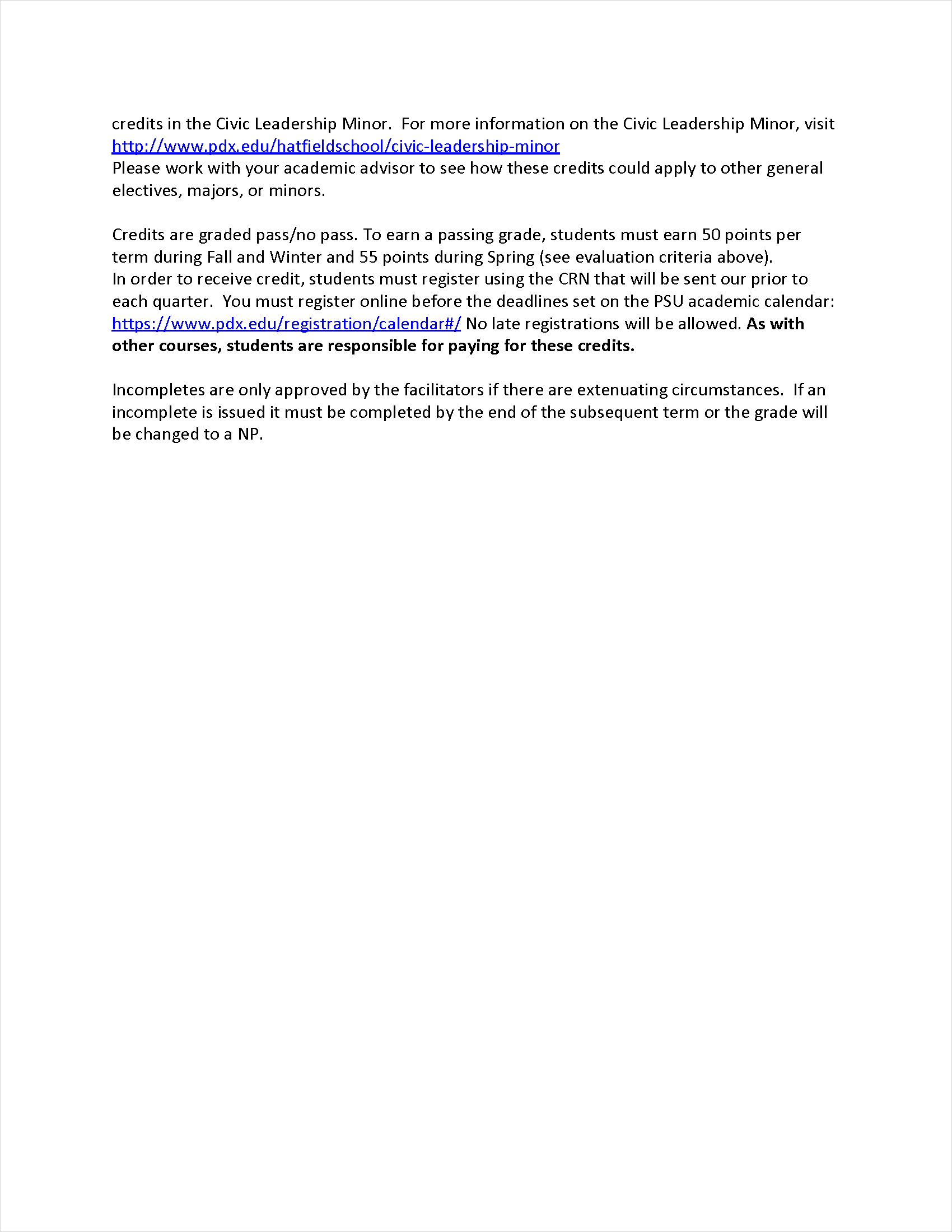Exemplar Type: COURSE/ PROGRAM
Title: The Leadership Fellows Program
Grades: Undergrad, Grad
Discipline:
Submitted By: Heather Spalding
Course Description: The Leadership Fellows Program is a one year academic program offered through Student Activities and Leadership Programs (SALP) at Portland State University. The goals of the Leadership Fellows Program are to develop your leadership skills to better serve your student position; develop understanding, knowledge, and skills that you can use in your career and community work; and to meet other student organization leaders and share insights.
Learning Objectives: The Leadership Fellows course is designed with specific learning outcomes that each cohort will spend time on.
SALP Learning Outcomes:
1. Consciousness of Self
2. Sustainability
3. Common Purpose
Student Sustainability Center Learning Outcomes:
1. Building relationships and systems
2. Knowledge and awareness
3. Civic engagement
4. Sustainability leadership
5. Purposeful pathways
BENCHMARKS REPRESENTED IN THIS EXEMPLAR
Big Ideas
A healthy and sustainable future for human and other life is possible
Humans are dependent on Earth’s life-support systems
Diversity makes complex life possible. It assures resilience in living systems
Places are alive, unique and evolving. If humans want to flourish over time, our relationships with the places in which we live must be mutually beneficial
We are all in this together. We are interdependent on each other and on the natural systems
Nature sustains life by creating and nurturing communities
Living and non-living things are subject to the laws and principles derived from nature
The changes to the Earth’s surface environments made by human activity are causing unintended consequences on the health and well-being of human and other life on Earth (proposed Anthropocene Epoch)
The significant problems we face can’t be solved with the same thinking we used to create them. Our prior experiences with the world create cognitive frameworks (also known as mental models/maps) that inform what we can perceive. They shape our behavior and our behavior causes results. If we want to produce different results, it all begins with a change in thinking
Sustain-ability requires individual and social learning and community practice
We all depend on and are responsible for “the commons”, i.e., what we share and hold in trust for future generations. Recognize and Protect the Commons
We must pay attention to the results of our thinking and behavior on the systems upon which we depend if we want to thrive over time. Read the Feedback
We are all responsible for the difference we make. Everything we do and everything we don’t do makes a difference
Higher Order Thinking Skills
Emergent: Creative Thinking
Emergent: Design Thinking
Emergent: Ecologically Design
Emergent: Regenerative Design
Complex: Critical Thinking
Mindful: Questioning
Mindful: Reflective Thinking
Hands On Skills: Building
Making, Tinkering, Crafting
Hands On Skills: Design/Drawing
Hands On Skills: Gardening/Farming (organic, permaculture/bio-dynamic, integrated pest management)
Applied Knowledge and Actions
Strong Sense of Place
Cultures, Traditions and Change
The Many Ways of Knowing
System Dynamics and Change
Responsible Local and Global Citizenship
Multiple Perspectives
Dispositions
Courageous
Curious
Efficacious
Imaginative
Mindful
Resilient (the spirit to bounce forward not back)
Collaborative
Compassionate
Empathetic
Ethical
Place/Community Conscious
Respectful, Self Aware
Applications and Actions
Create Social Learning Communities
Engage in Dialogue
Honor the specific knowledge and skills that each person and culture brings
Build from successes
Learn from mistakes, develop strategies to improve, and apply what is learned
Teach and Learn
Design for whole systems integrity with ecological principles and physical laws in mind
Define and Re-Define Progress
Empower people and groups
Envision, strategize and plan
Govern from the bottom up
Lead by example
Make the least change for the greatest effect
Trust local wisdom
Be inclusive
Practice justice and equity for all
Take responsibility for the effect you have on future generations
Treat others with respect and dignity
Create and maintain highly functional and successful teams
Use creative tension to resolve conflicts
Listen to one another
Serve your community



